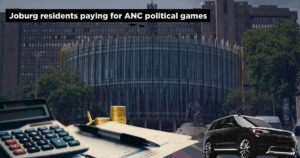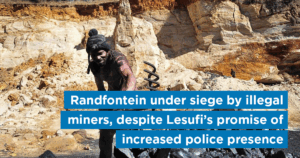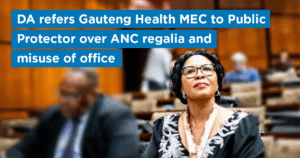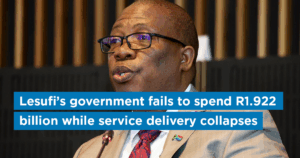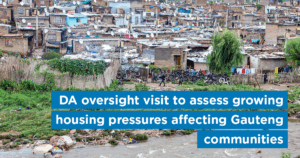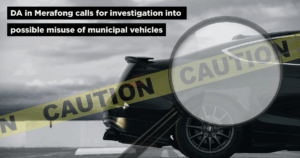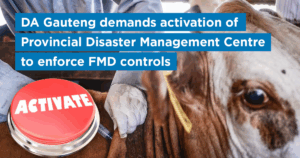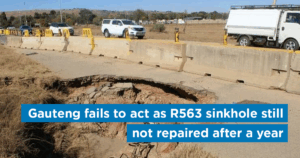Note to Editors: Please find an English soundbite by Cllr David Foley here
The Democratic Alliance (DA) in Johannesburg is renewing its call for the dissolution of Johannesburg Water’s board. The organisation has once again been shaken by another massive waste of money, in what seems to be a tender scandal unlike anything we’ve seen in recent years.
In a concerning revelation from a meeting last year between councillors and Joburg Water, it emerged that the entity had appointed three contractors to supply water tankers to the City of Johannesburg in times of crisis. Two of these contracts alone were awarded contracts to the value of R263 million.
To put this into perspective, the average cost of a water tanker is approximately R1.5 million.
Based on these figures, the City could have purchased about 175 tankers outright, permanently securing this vital resource. While such a large fleet would likely exceed operational requirements, even allocating funds for 80 tankers, along with maintenance and drivers, could have provided a sustainable, in-house solution which could also foster employment within the entity and the city.
What makes this expenditure particularly troubling is the limited scope of the services provided by these contractors. The companies are only responsible for supplying the vehicle, driver, and fuel—not the water itself. Joburg Water remains responsible for filling the tankers, a task already compounded by the City’s staggering 46% non-revenue water loss.
This setup raises significant questions about cost-efficiency and governance.
We have written a letter to the MMC of EIS and MMC Group Corporate Shared Services to ask them to investigate the irregularities around this tender appointment. Both companies, Nutinox and Builtpro, did not meet all the requests highlighted within the tender application and could also not show owned assets of water tankers but rather appear to be a middleman, hiring tankers from other companies.
In mid-2024, the council approved the Joburg Water turnaround strategy, which underscored the urgent need for governance reform. Central to this was addressing political interference in board appointments and tender allocations. The irregularities surrounding this tender deal are emblematic of the issues plaguing the entity. This is why the DA has consistently advocated for the dissolution of the Joburg Water Board of Directors, a body currently comprised of predominantly political appointees, with only one engineer among them.
On November 27th, the DA brought this fight back to the council, presenting a memorandum to the Mayor demanding accountability for the implementation of the turnaround strategy. Despite this, there has been little progress. The failure to dissolve a board that is ill-equipped to handle Johannesburg’s water crisis underscores the Mayor’s apparent apathy towards the severity of the situation. His inaction reflects a disregard for the mounting challenges—from water shortages to financial mismanagement—faced by residents daily.
It is time for the City of Johannesburg to adopt a more pragmatic and transparent approach to managing its water resources. Investing in permanent infrastructure, enhancing governance, and eliminating undue political influence are essential steps towards ensuring reliable and equitable water access for all. Anything less is an abdication of responsibility to the people of Johannesburg.
The costs, deviations and irregularities around the tender are further putting service delivery at risk in the City of Joburg. Good governance needs to begin in the offices of the Executive and ensure the appointed boards of entities along with the bidding, tender and evaluation committee are holding to the guidelines as required by the Municipal Finance Management Act as well as the Structures Act.
